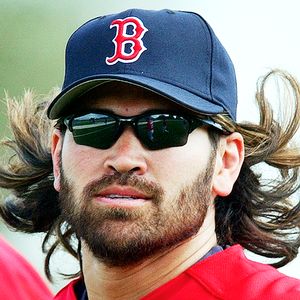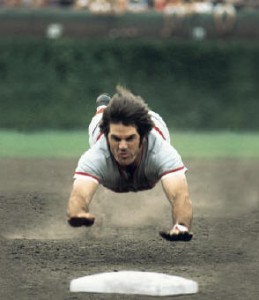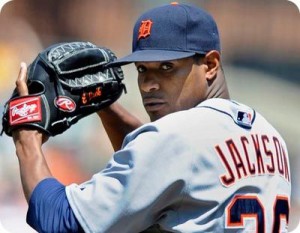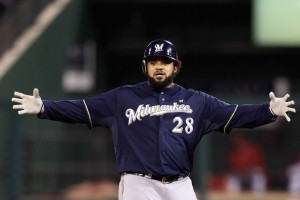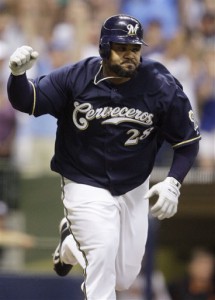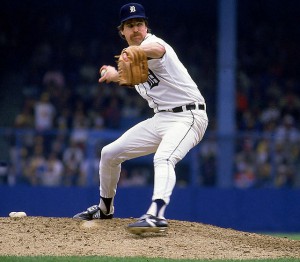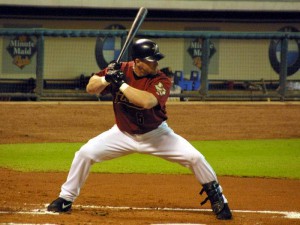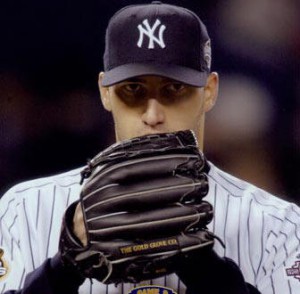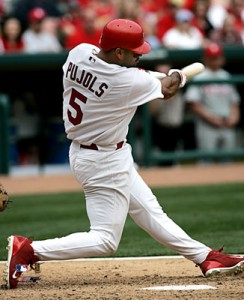
If you squint, this almost looks like an Angels uniform already. Photo: unknown via fantasyknuckleheads.com
Here’s Tom Boswell‘ weekly Monday chat on 12/12/11. Despite being in the baseball off-season, the chat had a TON of baseball questions. Of the baseball questions he took, here’s how I’d have answered them.
As always, questions are edited for clarity and I write my own answer prior to reading his.
Q: Is Albert Pujols a cautionary tale for the Nats signing Ryan Zimmerman to a long term contract?
A: Its not *quite* the same; Pujols is better but older, and if you believe the scuttlebutt/internet rumors may be even older still. Zimmerman will hit his walk year at age 28 with a good 3-4 years of “peak” in him (assuming that your “peak” is somewhere around age 31). So the Angels just bought 10 years of almost-certain decline for Pujols while the next deal that Zimmerman signs will still include his most productive years. The Cardinals were nearly $40M off in the end, AND didn’t offer up something like the personal services contract that guarantees the retired Pujols income into his 50s. So there’s more at work here, honestly. In the respect that the Cardinals “played chicken” to a certain extent with Pujols, then yes there is a cautionary tale for how the Nats treat Zimmerman.
But there are some issues with extending Zimmerman. He’s injury-prone. He’s missed nearly 150 games in 5 seasons, had two surgeries and a third major injury (his labrum) that could have been surgical. Is his 2009 season (33 homers, 106 rbi and a 133 ops+) the best possible case or is that his sustainable production? The team wants to extend him (if you believe the beat reporters) but the team has also rebuffed Zimmerman’s agents’ attempts to negotiate this off-season (if you believe ex-Nats gm hack Jim Bowden). Me? I’d see what happens in 2012 and make a decision next off-season. Boswell assumes the Nats will offer Zimmerman a Troy Tulowitzki type deal, and so do I frankly.
Q: What are your opinions on the seemingly arbitrary Hall of Fame voting process?
A: My issues with HoF voting include the following:
- Voters who are voting on morals/ethics stances and not productivity on the field (say, Roberto Alomar).
- Voters who are swayed by revisionist-historian sabremetrics nerds who canonize players 25 years after they played but forget that those same players were essentially mediocre during their day (i’m looking at you Bert Blyleven).
- Voters who use the HoF vote to penalize players that stiffed them or were mean to them during their career (how else can you explain some of the voting results for players that should be sure-fire near 100% electees? Willie Mays only got 94% of the vote, Mickey Mantle an even more ridiculous 88%.
- Voters who fail to vote for players who have never had any sniff of PED controversy but who played in the era (Jeff Bagwell).
- Voters who have now elected nearly 13% of active players from the 30s and 40s but who can’t find a place for the best players from the 80s (Raines, Larkin, Morris and the like).
As for the election of Ron Santo, he is another case of a guy who slipped through the cracks and who should have been elected by the veterans committee long before he passed. What sense does it make to canonize a guy right after he dies? So that his wife can be happy? I don’t get it. Santo was the same guy, with the same stats, ever since the day he retired.
Boswell says he agrees with the “first ballot hall of fame” distinction and supports NOT voting for guys who aren’t the uber-elite on the first ballot. He also mentions that Blyleven’s candidacy was clearly helped by outside lobbying.
Q: Where — if at all — does Yu Darvish fit within your “pay up for quality” theory in last weekend’s post-Pujols signing column? Also, How likely are the Nats to make a serious bid for Darvish?
A: Boswell’s theory in baseball free agency is simple: you pay up for quality because the rest is junk. A good working theory in some respects; he figures that “going for it” and failing is better than just dipping your toes into the FA water.
I think the Nats will put in a legitimate offer, but that it won’t be close to the $51M that it took to sign Dice-K.
My personal concern with Darvish is the fact that many have come before him from Japan and very few have succeeded. There’s yet to really be one impact pitcher that has come from the Japanese leagues. And even those that do come over with great pedigrees (Dice-K as the most recent high profile example) tend to burn out quickly. It isn’t a race thing; its more of a level of competition and a different pitching routine in the Japanese leagues (starters go on 5 days rest, not our traditional 4). For me, the risk is not worth it. I know these teams have scouted the hell out of Darvish and believe what they believe, but the fact is that the NPB is a AAA-quality league and the minors are FILLED with guys who dominated AAA but who couldn’t get guys out in the majors. If it was just a FA signing (4yrs $50M) that’s one level of risk, but throwing in nearly that amount just in posting fees and suddenly you’re compensating a guy at the level of an elite Ace in this league without any proof that the guy will actually live up to that level. Boswell uses the same comparisons as I do, and predicts that the Nats will be over-bid by the major market teams that are looking for starters.
Q: How much should St. Louis fans be remonstrating about Pujols leaving?
A: Not much. For all those that say that athletes should take less money to be “the man” for their first team, I say, “put yourself in his shoes.” He was offered more money in Los Angeles. Plain and simple. If it was a few million dollars over 10 years that’s one thing; $30M over 10 years plus the personal services contract? That’s a lot more. Everyone who thinks that Pujols “owed” something to St. Louis, or that he should have wanted to stay there his whole career like Stan Musial needs to remind themselves of one thing; If Musial played in the Free Agency era instead of the reserve clause era, would he have stayed in St. Louis his whole career? In my opinion if St. Louis couldn’t come up with the per-year payroll, they should have gotten creative with perhaps points in the team or something along those lines. If St. Louis really wanted Pujols to be the face of the Cardinals for the next 50 years, they could have made it happen. Boswell agrees with me, for the most part.
Q: Do you agree with the Washington Post preventing its writers from voting for Baseball Awards? (post-season and hall of fame, the typical BBWAA awards)?
A: I think its ridiculous that the Post, and the Post alone apparently, takes this stance. The whole point of using baseball writers to vote on these awards is because baseball writers are the BEST people to use; they cover teams, go to the games, and see the stars in action to a greater extent than anyone else besides the team officials and players themselves. Boswell points out the obvious conflicts of interest, but those same conflicts exist for every writer in every market. Honestly I think the way the NFL does things (with a nominating board of senior national writers) is a far better way to determine who gets in to the Hall of Fame.
Q: Is is just me, or did it seem obvious the Cards didn’t really want to sign Pujols?
A: No, to me the Cardinals set their price and when the price went above it, they waved good bye. Now, you can argue that the price they set was far too low (If Pujols was looking to beat AAV of Alex Rodriguez‘s contract just on principle, then he’s a fool and was never going to beat that), but in the end the Angels just offered more money than made sense to St. Louis from a long term financial viability perspective. Fair enough. There’s lots of articles out there saying how much St. Louis privately breathed a sign of relief that they’re not going to have to go through the “oh my gosh how overpaid is Pujols” phase 8-10 years from now… Boswell thinks St. Louis was banking on a home-town discount.
Q: Should the Nats be looking to sign guys like Clippard and Storen long term (as they should be doing with Strasburg)?
A: No. Not that I don’t like these two players, but relievers (outside of the uber-elite, guys like Mariano Rivera) are mostly replaceable. I’ve posted time and again about how overvalued relievers and (especially) closers are. You just should not over-spend for these guys; you can always find more of them in your farm system. Boswell says you can’t sign them all.
Q: Do you see Ross Detwiler making the 2012 rotation?
A: No, not at this point. The team is clearly trying to find another FA starter, which puts Detwiler‘s spot directly in their cross hairs. Look for Detwiler to be traded as soon as a new pitcher is signed, now that they’ve locked up Gorzelanny as the lefty long-man/spot starter already; I can’t see both Detwiler and Gorzelanny in the bullpen. Detwiler is out of options and can’t be stashed in AAA. Of course, he could come down with a mystery soft-tissue injury that delays the inevitable. Boswell says the same thing, but doesn’t talk about Detwiler’s lack of options.
Q: Did the Nats lack of winter meeting activity indicate that the Lerners are cheap and that the team is going nowhere?
A: Wow, fail to sign a $200M player and you’re a failure. Lets have some patience here; the team may have really been on Buehrle but wasn’t on anybody else that has already signed frankly. Oswalt is still out there, as is Darvish. As is Fielder, who could be the massive run-creating machine that this lineup needs. Boswell says the need to sign Oswalt is bigger now, and I’d tend to agree since he was the guy I wanted in the first place.
Q: Any idea whether the Nats ever made Buerhle an offer or whether there really was any interest in Reyes? Do you think the Nats will make a move on Darvish or the Cuban CF Cespesdes?
A: Nats definitely made Buehrle an offer; it just wasn’t very close. I don’t think there was interest in Reyes; they really like Desmond at 1/20th of the cost right now. I think the team will definitely post a reasonable bid (perhaps $25-$30M for Darvish) but probably gets out-bid. And yes I think the team will be in the Cespedes bonanza, but may be out-bid by another team as well that has a longer-term view on the guy. Boswell mirrors what I’ve said here and also says they’re “serious” about Oswalt now. But are they serious enough?
Q: Do you expect the Nats to try and bid on Zack Greinke next year?
A: Yes absolutely. If Greinke hits the open market, this team will be all over him. If they sign Oswalt this year and Greinke next, you could be looking at a 2013 rotation that goes Strasburg, Zimmermann, Oswalt, Greinke and a death-match struggle between our best 5-6 starter prospects for the #5 spot. That’s scary good. Boswell says he hopes the team doesn’t pass on the rest of this off-season just to wait for the next one.
Q: Did the Marlin’s offer too much or did the Nationals not offer enough for Buehrle?
A: A little of both probably; Buehrle reportedly liked DC and liked the money, but a 4th year and nearly $19M more was too much to match. 3yrs/$39M has an AAV of $13M, which was actually LESS than he earned on his last contract. So that doesn’t sound right; would we have offered him a pay cut? Boswell says the Marlins went too high, which was my initial reaction until seeing the AVV.
Q: Braun’s steroid test showed twice the level of any other sample. Ever. That has to be a false positive… or some other such type of error. What does that mean medically? Did they take the blood sample from the same cheek and 5 minutes after Braun shot up?
A: Fair point. That’s kind of what i’m thinking frankly. The test doesn’t seem to make sense. I will say that its awfully irritating to read all these posts already assuming he’s guilty. Boswell didn’t have much of an opinion yet.
Q: So, is Fielder completely off the table for the Nats? Seems weird that we were one of the teams linked to him all season, and now, nada. Boras power play at work here?
A: Boras clearly uses us to play for his clients. But I also don’t think the team is completely out of it for Fielder. The team needs offense, can stay with Morse in left for a bit and just can eat it on LaRoche. Maybe. Boswell doesn’t know what to think.
Q: Have you heard of any more interest in Edwin Jackson from the Nats?
A: Interestingly no. I would have thought the Nats would be full bore over the guy, based on past interest. But nobody’s printed a single word of Jackson rumors this offseason. Perhaps his representation is just waiting out the big names before shopping their guy. He did seem to come up rather ineffective in the post-season, dampering his value, so perhaps the team has soured on him. Boswell says Oswalt is better option.
